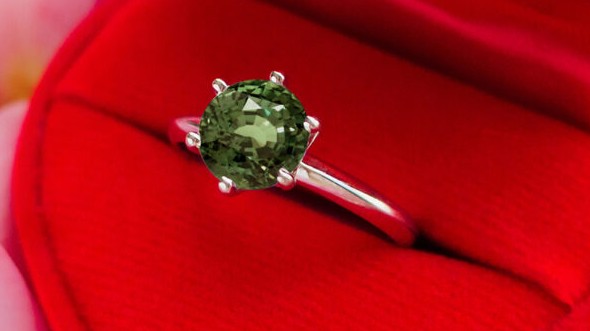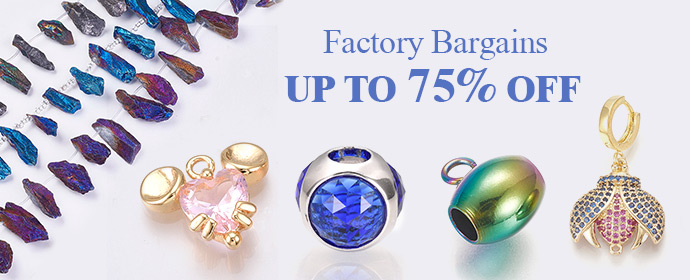An engagement ring is of prime importance among all other jewelry pieces. That’s because an engagement ring holds the sentimental value of two people who choose to be together forever. This makes applying thoughtful consideration in deciding on an engagement ring of prime importance as well. Your engagement ring should be a reflection of the coming together of the souls of you and your partner. It should manifest the love that the two of you have developed for each other over the years. Therefore, your engagement ring should be beautiful, divine, and everlasting. In that sense, you can choose your fascination from alexandrite engagement ring.
But as with other pieces of jewelry, choosing an alexandrite engagement ring is a bit daunting, if not dismaying, especially for men who haven’t bought any jewelry before. Let’s learn about the anatomy of a ring to understand why choosing an engagement ring is a bit daunting. The anatomy of a ring comprises many parts, such as a center stone, two side stones – if the ring in question is a multi-stone jewel – and some accent stones embedded in the shank, the shank, and the ring setting. So, you need to properly understand all these different portions of a ring to get a beautiful, divine, and everlasting alexandrite engagement ring.
Even if you already have a considerable understanding of these different portions of a ring, things get a bit dramatic because you’re anxious due to the fact that the jewel in question is one of your life’s most precious purchases. Thus, you should consider some things before investing in an Alexandrite engagement ring. Let’s learn about these things in this article.
The Distinction in the Color Change
The most important feature of an alexandrite gemstone is its color change. The first thing that comes to your mind when you hear the word ‘alexandrite’ is a unique gemstone that changes its color based on the lighting conditions. People get alexandrite because it exhibits an emerald-like green color in natural light and a ruby-like red color in incandescent light. In alexandrites, the color change is so prominent that it determines the value of the gemstone more than any other factor. This is the first thing that you need to consider before purchasing an Alexandrite engagement ring.
If you’re eyeing a budget-friendly engagement ring, you need to choose an alexandrite that doesn’t exhibit much color shift. On the other hand, if you’re eyeing an Alexandrite center stone with a 100% color shift, be ready to spend a hefty amount of money. The distinction in the color change in alexandrites can be anywhere from 5% to 100%. Stones that exhibit the maximum distinction are the most valuable ones. There you go!

The Shape of your Alexandrite Center Stone
There are so many standard and fancy shapes out of which you can choose the one that goes with your partner’s style. These shapes are round, oval, square, pear, marquise, heart, and asscher, to name a few. For instance, if your partner loves classic gemstone jewelry pieces then there’s a high probability that she’ll love a round alexandrite center stone. Similarly, if she’s a bit modern when it comes to her jewelry, a pear-shaped alexandrite engagement ring will make her happy as nothing else does. If she has a bold taste in jewelry, you’ll surely put a smile on her face with a trillion-cut alexandrite ring.
As I said, there are so many standard and fancy shapes out of which you can choose the one that goes with your partner’s style. You should also consider the symmetry of your alexandrite center stone when choosing its shape. Choose a stone with symmetrical facets because they’ll maximize the beauty of the stone. The importance of symmetry doubles for marquise stones because the marquise shape is so slender that any difference in symmetry becomes conspicuous enough for everybody. So, if you’re choosing a marquise center stone, look for a stone with perfect symmetry.

The Suitability of a Metal
Let’s say you’ve chosen the center stone and accent stones for your Alexandrite engagement ring. Now, you’re eyeing for a metal for your engagement ring. At this stage of designing an engagement ring, many people fail to acknowledge the fact that choosing a metal needs mindful consideration rather than only a slice of creative genius. Not all metal alloys are comfortable, some act as allergens to your skin.
Choosing such metals out of a lack of mindful consideration might cause skin allergies, such as rashes or swelling. You need to ascertain which metals suit the skin, and skin tone, for that matter, of your lover. Your partner will be most likely wearing her alexandrite engagement ring every day. So, it’s best that you choose a suitable metal for your engagement ring based on her choice.
The Option of a Synthetic Alexandrite Centerstone
A competitive market for lab-created alexandrites has been established over decades. That’s because natural and lab-created alexandrites are coequal in terms of physical and optical properties. The only difference between the two exists in the formation of these stones. Natural alexandrites are formed deep in the earth’s crust. Whereas, lab-created alexandrites, as the name suggests, are formed when the process of the formation of natural stones is mimicked in a controlled environment in a laboratory.
While natural stones take years to form, lab-created rocks are formed at an accelerated rate. Because lab-created alexandrites are formed in laboratories, they are inexpensive compared to their natural counterparts. That’s the reason behind the proclivity of many people toward lab-created alexandrites. So, if you’re not the kind of person who’ll only settle for nothing but a natural stone, the option of a synthetic alexandrite center stone is always there. Get yourself a synthetic alexandrite engagement ring if you’re on a tight budget.

The Bottom Line
So, these were the things that you need to consider before getting an alexandrite engagement ring. All these suggestions will help you choose an engagement ring that withstands the test of time like nothing else does. And above all, your partner will cherish this jewel forever.
Recommend0 recommendationsPublished in Jewelry



